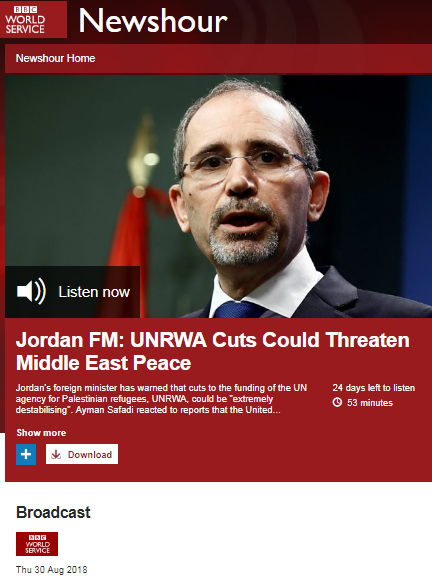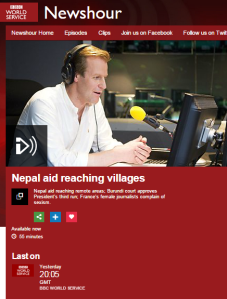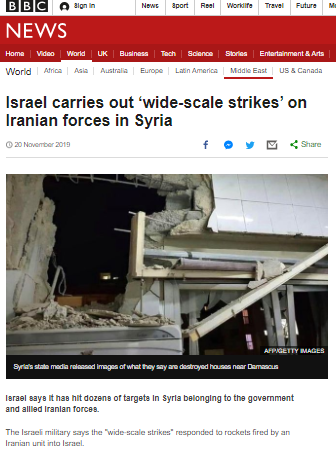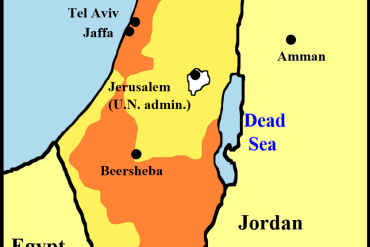The session concerning the US’s recognition of Jerusalem as Israel’s capital city that was held at the UN General Assembly on December 21st was the subject of several articles published on the BBC News website.
The day before the meeting took place – December 20th – an article headlined “UN Jerusalem vote: US ‘will be taking names’” which was previously discussed here appeared on the BBC News website.
An additional article published on the same day ran under the headline “Jerusalem UN vote: Trump threatens US aid recipients” and like the day’s earlier report, it too promoted the partisan map of Jerusalem produced by the political NGO B’tselem that has been regularly featured in past BBC content and – inter alia – portrays the Jewish Quarter of the Old City of Jerusalem as an ‘Israeli settlement’. The article also included the exact same copy/paste context-lite background concerning Jerusalem seen in previous reports.
“The status of Jerusalem goes to the heart of the Israeli-Palestinian conflict.
Israel occupied the east of the city, previously occupied by Jordan, in the 1967 Middle East war and regards the entire city as its indivisible capital.
The Palestinians claim East Jerusalem as the capital of a future state and its final status is meant to be discussed in the latter stages of peace talks.
Israeli sovereignty over Jerusalem has never been recognised internationally, and all countries currently maintain their embassies in Tel Aviv. However, President Trump has told the US state department to start work on moving the US embassy.”
Following the UN GA vote on December 21st, the BBC News website published an article titled “Jerusalem: UN resolution rejects Trump’s declaration” which was amended numerous times. That article too included the exact same ‘background’ concerning Jerusalem and the partisan B’tselem map. Readers were provided with a break-down of the results.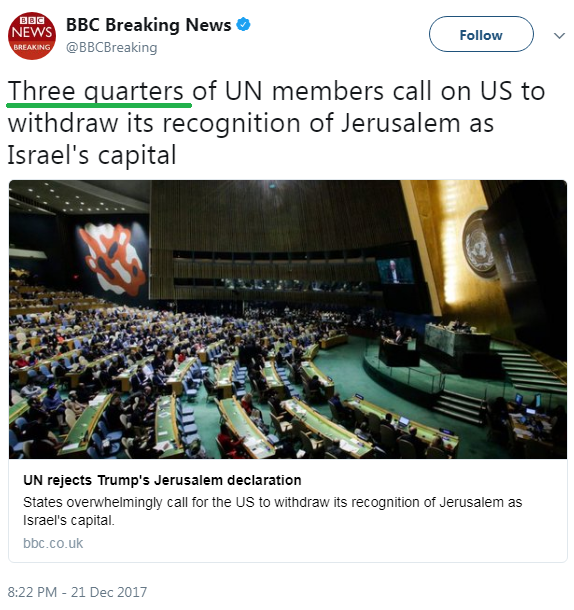
“The non-binding resolution was approved by 128 states, with 35 abstaining and nine others voting against.”
Later on readers were also told that:
“There were 21 countries who did not turn up for the vote.”
Despite 63 nations (33.7% of the total) not having voted in favour of the resolution, the apparently mathematically challenged BBC Breaking News Twitter account declared that “three quarters” of the 193 UN members had voted for the resolution.
On December 22nd the BBC News website published a ‘guide’ titled “How did your country vote on the Jerusalem resolution?” and on December 23rd an article by Nada Tawfik was published under the title “US plays hardball at UN over Jerusalem vote“.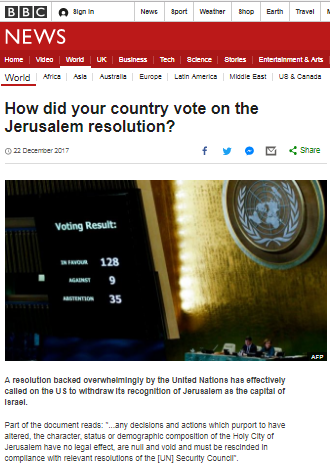
In that article Tawfik portrayed the chronic anti-Israel bias at the UN as a ‘claim’ made by the current US administration.
“What a difference a year, and a new administration, makes. When the US ambassador to the United Nations, Nikki Haley, made her debut at the UN headquarters in New York, she warned: “For those who don’t have our backs, we’re taking names.”
The new Trump administration came in openly hostile toward the international body for being, it claimed, biased against Israel.”
Tawfik’s article also promoted a quote concerning international law that is liable to mislead audiences.
“French ambassador Francois Delattre said the resolution adopted “only confirms relevant international law and provisions on Jerusalem. This vote must not divide or exclude”.”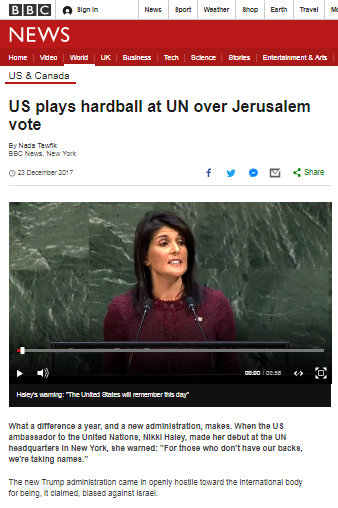
In summary, the BBC News website published five articles pertaining to the December 21st UN GA vote, three of which included inadequate historic background and promoted a partisan map produced by a political NGO. The additional two articles did not provide any information whatsoever that would enhance audience understanding of the background to the story.
Once again we see that the BBC’s coverage of the topic of Jerusalem is focused on promoting a specific political narrative rather than on providing audiences with the full range of information and opinions needed for them to make up their own minds on the subject.
Related Articles:
BBC News still promoting information on Jerusalem from partisan NGOs

